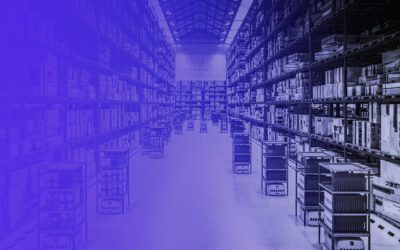We’ve all been guilty of choosing passwords that are less than ideal. Some of us may have even used the dreaded “password” as a password at some point in our lives. But now that many of us are working from home, we need secure credentials to keep our information safe.
Before more employees started working from home, all the data related to a business was housed on the premises. Now, it’s spread across various home networks. This poses a network security risk since there are more access points to exploit, with reduced security measures.
Any hacker that acquires an employee’s username and password can gain access to highly sensitive documents. But what if you could set up an extra defense? That’s where an MFA comes in handy, which stands for multi-factor authentication. It’s a system designed to increase security on various platforms and networks. Essentially, it makes it more difficult for unauthorized individuals to access your information.
Examples of MFA include:
- Facial, iris, or voice recognition
- Fingerprinting
- Security questions
- A verification code that’s sent to a cell phone
- A physical item, like a USB or key fob
The more authorization factors that you require, the more secure your network is.
WHY REMOTE WORKERS NEED MFA
If you’re on the fence about implementing MFA, here’s why you should take the plunge:
It’s convenient
It might seem like a hassle to provide more than a username and password just to log into an account. But in some cases, it may be easier for your employees. For example, with facial recognition technology, they won’t need to type anything to access their account.
Another issue that working remotely poses is when your employees forget their passwords. MFA provides alternate login options, like security questions and fingerprinting, that won’t require them to memorize a complicated string of numbers and letters.
Some may find the additional requirements to be cumbersome, but it’s a small price to pay for the enhanced network safety that MFA offers.
You want to increase the security of your business without irritating your employees with additional measures. MFA is the perfect solution.
It protects your network
Cybersecurity is one of the most important issues facing businesses across the globe today. The safety of your data is only as strong as the account credentials of your employees – that is until MFA is implemented.
Hackers need to do more than figure out passwords and usernames; now, they need other authorization, too. Some forms of MFA can’t be replicated, like biometrics.
You will be notified immediately if an unauthorized individual attempts to access your system. Stop hackers in their tracks with this security measure!
MFA is effective
A study by Microsoft in 2019 demonstrated that MFA can prevent 99.9% of account attacks.
Regardless of whether your passwords are highly secure, they can still be accessed through data breaches and other security issues. Hackers know that more employees are working from home, and they’ll take any opportunity they can find to exploit a poorly protected network. However, they won’t get very far with MFA in place.
This pandemic won’t last forever. Even when your employees can safely return to work, MFA can still benefit your business by increasing the security of your network.
There’s no downside!
You may need to pay for MFA features, but consider how much it would cost your business if your data were breached.
There has been a 300% increase in cybercrimes since the start of the pandemic. Using “1234” as a PIN code just won’t cut it these days.
Many businesses can’t afford the costs associated with getting hacked and losing data. Not only will they lose confidential information, but consumers will lose trust in their brand. Depending on the industry, it could be devastating for clients to have their information leaked. Revenue streams may already be tight due to the pandemic—but getting hacked could be too much for your company to sustain.
Protecting your business information is in the best interests of your staff members, your clients, yourself, and your intellectual property.
Before most employees worked from home, any login from a location outside the company was considered suspicious. But now that employees are accessing networks from their residences, it’s more difficult to tell what’s authorized and what’s not.
You’ll need more than a secure password to protect your data these days. With multi-factor authentication, employers can rest assured that their networks have the security measures necessary for remote work.



